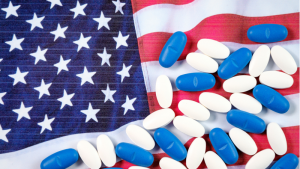President Trump today signed into law a bill quickly approved by House and Senate this week that provides $8.3 billion of funding for Federal government response to the COVID-19 coronavirus, including vaccine and treatment development, support for state and local health agencies, and loans for small businesses impacted by the virus.
The House voted late on March 4 to approve the Coronavirus Preparedness and Response Supplemental Appropriations Act (HR 6074) that would make $8.3 billion of new funding available for a “robust response” to the COVID-19 coronavirus, including vaccine and treatment development, support for state and local health agencies, and loans for small businesses impacted by the virus.
A bipartisan group of House members introduced legislation on Jan. 16 that would use broadband service data mapping to identify areas of the country where high rates of poor maternal health overlap with a lack of broadband service access.
Limited collection of Medicaid data by states is standing in the way of a complete analysis of opioid misuse and abuse within the program, according to an August 15 report from the Department of Health and Human Services’ (HHS’) Office of Inspector General (OIG).
Yesterday, the Food and Drug Administration (FDA) announced that it would be taking steps towards considering a new regulatory framework tailored to promote developing safe and effective medical devices that use artificial intelligence algorithms.
The state of Maryland is not properly securing Medicaid data and information systems, according to a Department of Health and Human Services (HHS) Office of Inspector General (OIG) report released today that found “numerous significant system vulnerabilities” in the state’s IT systems.
The Trump administration has a fever for curing Fraud, Waste, and Abuse (FWA)–in fact, this is perhaps the most important Three Letter Acronym in Federal IT today. So, GAO’s January report on the shortcomings of CMS Transformed Medicaid Statistical Information System (T-MSIS) and the fact that Medicaid improper payments hit an estimated $36.7 billion in 2017 raised temperatures across government.
The Centers for Medicare & Medicaid Services (CMS) want to modernize, but are being held back by a vestige of the 20th century–clunky, outdated technology platforms.
In the seven years since it was launched, the General Services Administration’s (GSA) Challenge.gov platform has demonstrated that crowdsourcing can be a winning approach to problem solving in government.












